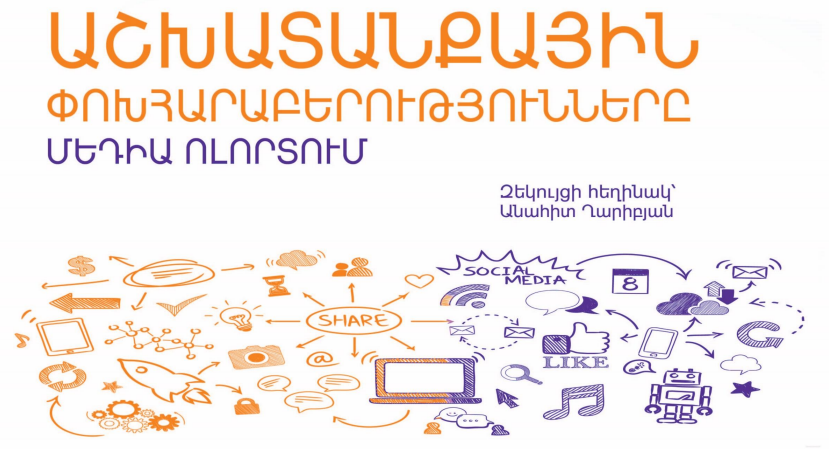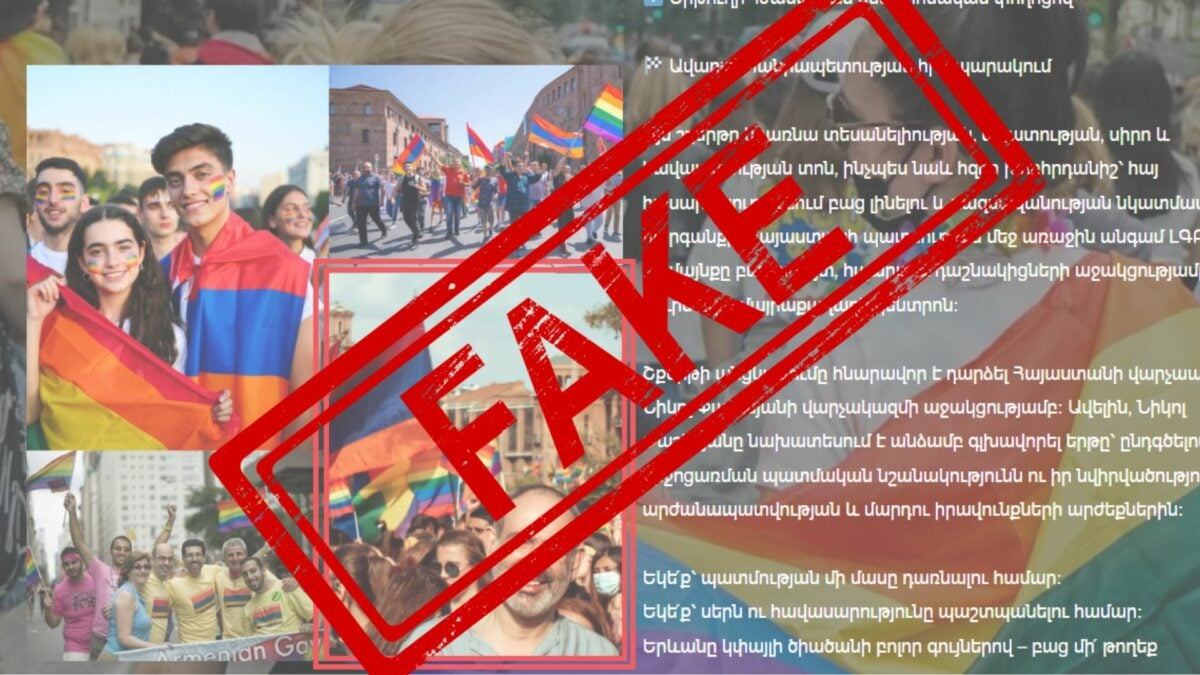Important discoveries
- In the media field, sometimes employer-employee relations are established by verbal agreement without any contract.
- The rights of media workers to vacation and overtime pay on weekends are often violated.
- The level of protection of media workers’ rights in Armenia is not high.
- The salary of half of the media workers surveyed does not exceed 200,000 AMD.
Journalists and media workers are the people who constantly raise this or that issue, often leaving in the background the shortcomings of their own field and, why not, the illegalities as well.
In order to address them from within, the Media Initiatives Center conducted research with sociologist Anahit Gharibyan on “Problems of Labor Relations in the Media Sphere.”
About 100 journalists took part in the online survey conducted within the framework of the research. 20 interviews were conducted with employers in the field, 9 of which were from online media, 7 from television, and two representatives from print and radio. Based on them, 14 media experts made conclusions.
Legal side, documents
Six out of one hundred media workers surveyed do not have an employment contract with an employer. In terms of documentation, a service contract was also adopted, under which 1/3 of the respondents cooperate with their employers. And despite the prevalence of the latter, some media workers do not differentiate between an employment contract and a service contract.
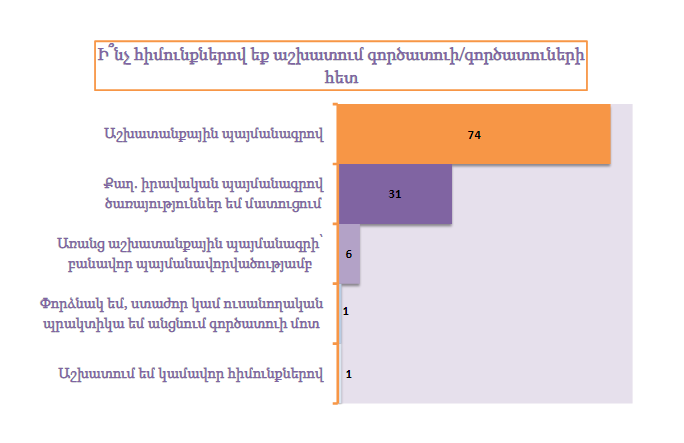
The vast majority of respondents (74%) say that they fully know all the provisions of the contract, but it does not help to protect their rights in case of violations. The reason is that there are no reliable structures and mechanisms with the help of which they will be able to restore their violated rights.
Employers often do not sign employment contracts, especially with beginners, exploiting newly graduated professionals who need to acquire practical knowledge and skills. The employer admits students to unpaid probation for 3 months or more, which is prohibited by law.
Finances
Respondents to the conditions provided by the employer at work are generally dissatisfied with the amount of remuneration. The salary of half of the media workers (52%) does not exceed 200,000 AMD.
The survey found that in some editions, the actual salary of employees differs from the fixed salary in the employment contract, which is usually set at the minimum wage. As a result, there are professionals in the field who receive cash salaries in envelopes.
During the conditions of the pandemic, the payments of the employees of a number of editorial offices were processed with delays, and both salary and staff reductions were observed.
Working schedule
The most common violation of the right of the respondents is the non-specification of the maximum duration of working hours by the employer (number 37). About 1/3 of media workers work more than 8 hours a day.
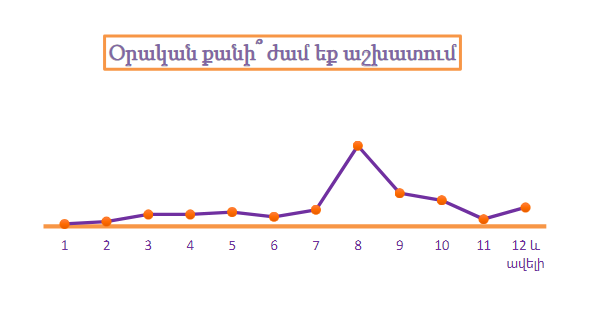
According to the participants of the survey, one of the commonly violated rights is also the overtime salary of media workers on weekends and vacation days themselves. More than half of the respondents think that the balance between working time and vacation time is disturbed in their field for the benefit of employers.
Security
Media workers in Armenia carry out their professional activities in life-threatening conditions (war, emergencies, epidemics, etc.), while they do not have security guarantees from either employers or the state. Employers provide medical insurance to journalists only in exceptional cases.
In times of war, employers do not provide workers with the protective clothing they need: armor, uniforms, and helmets. In addition, the vast majority of employers do not organize training for their employees, informing them about self-defense, and safety, as well as choosing clothes for dangerous situations, rules of conduct, etc.
Relationships within the media outlet
The majority of respondents (55%) tend to raise the issue and discuss issues with the employer in cases of workplace abuse and disagreement with the employer, and in some cases (12%) prefer to leave and/or change jobs without discussing and negotiating with the employer.
Only one of the journalists interviewed mentioned one case of sexual violence and/or abuse in the workplace, as a result of which they went to court.
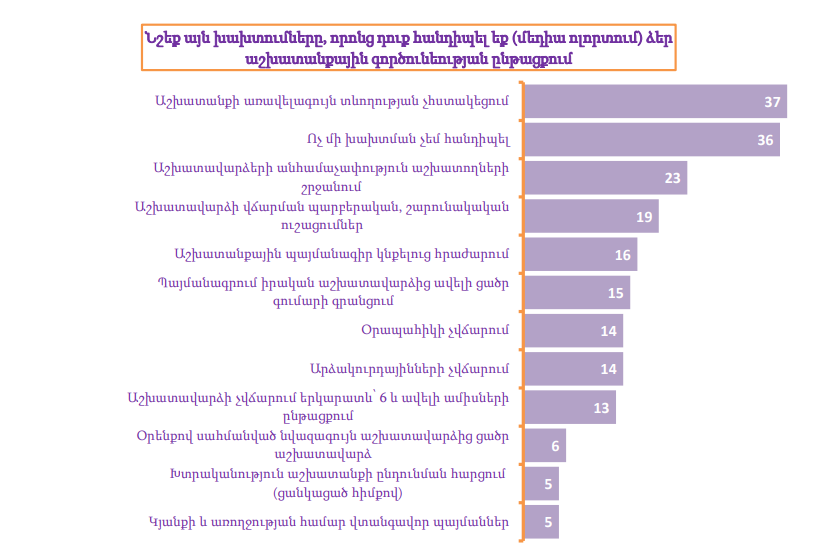
Summary
As a result of the research, it was discovered that the level of protection of media workers’ rights in Armenia is not high. Almost half of the respondents rated their level of protection with an average rating of 3, and 1/3 – unsatisfactory, i.e. 1 and 2.
There is a need for a journalists’ union in Armenia that would raise awareness and support for labor rights violations, provide legal advice, advocate for media workers, and provide security guarantees at work or in the workplace. Although such a structure already exists, the majority of industry representatives (95%) are not aware of the union’s activities, and those in the know consider its activities ineffective.
As a result, the financial instability of the media leads to violations of journalists’ labor rights, such as pay cuts and delays, ordered political and economic articles, exploitation and abuse of employees, dismissal, and so on.
Christian Ginosyan

